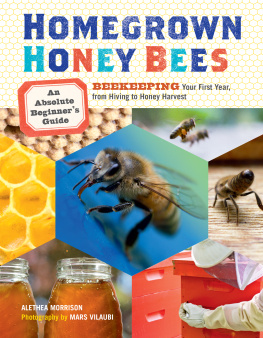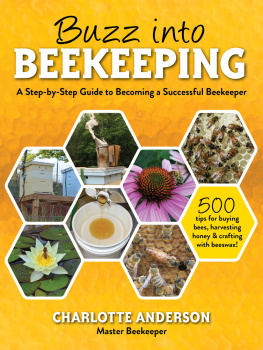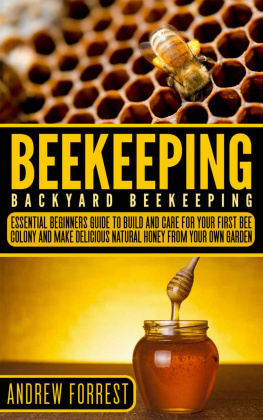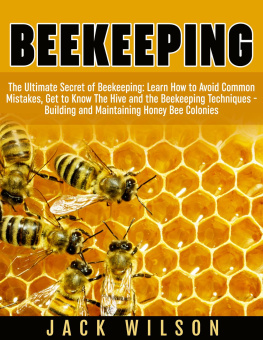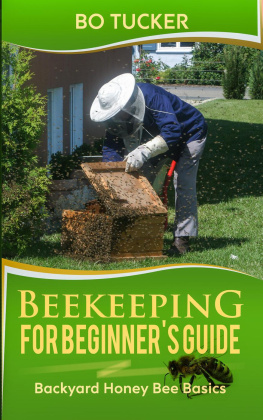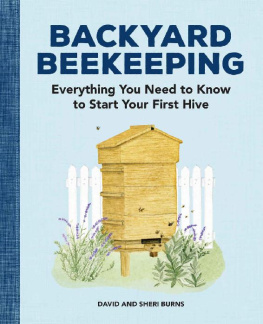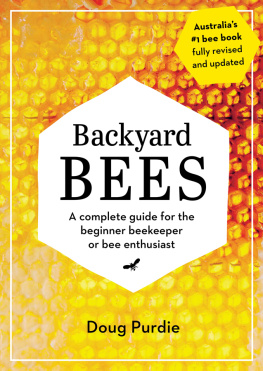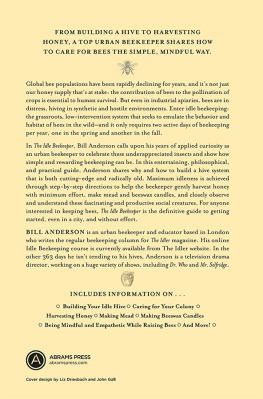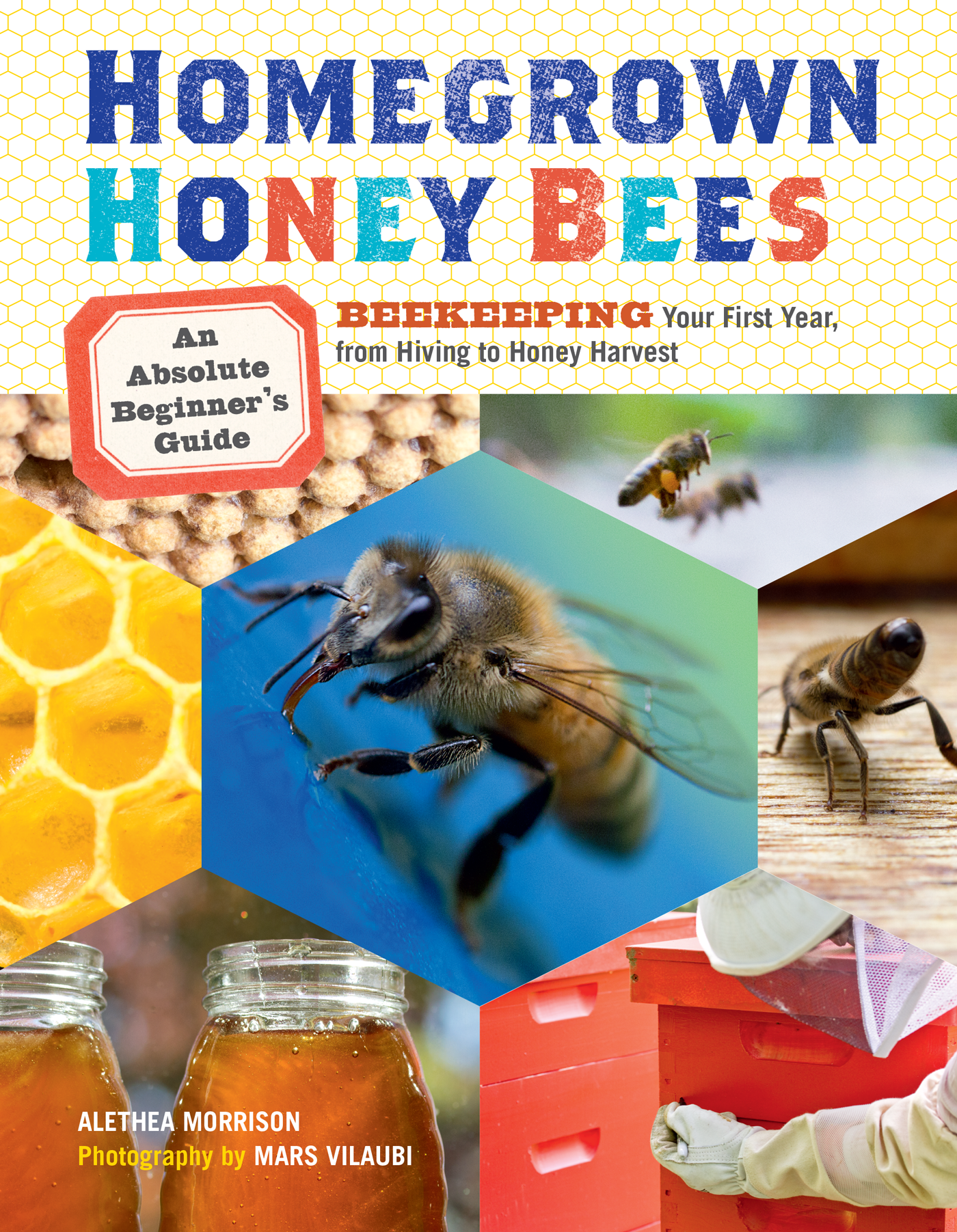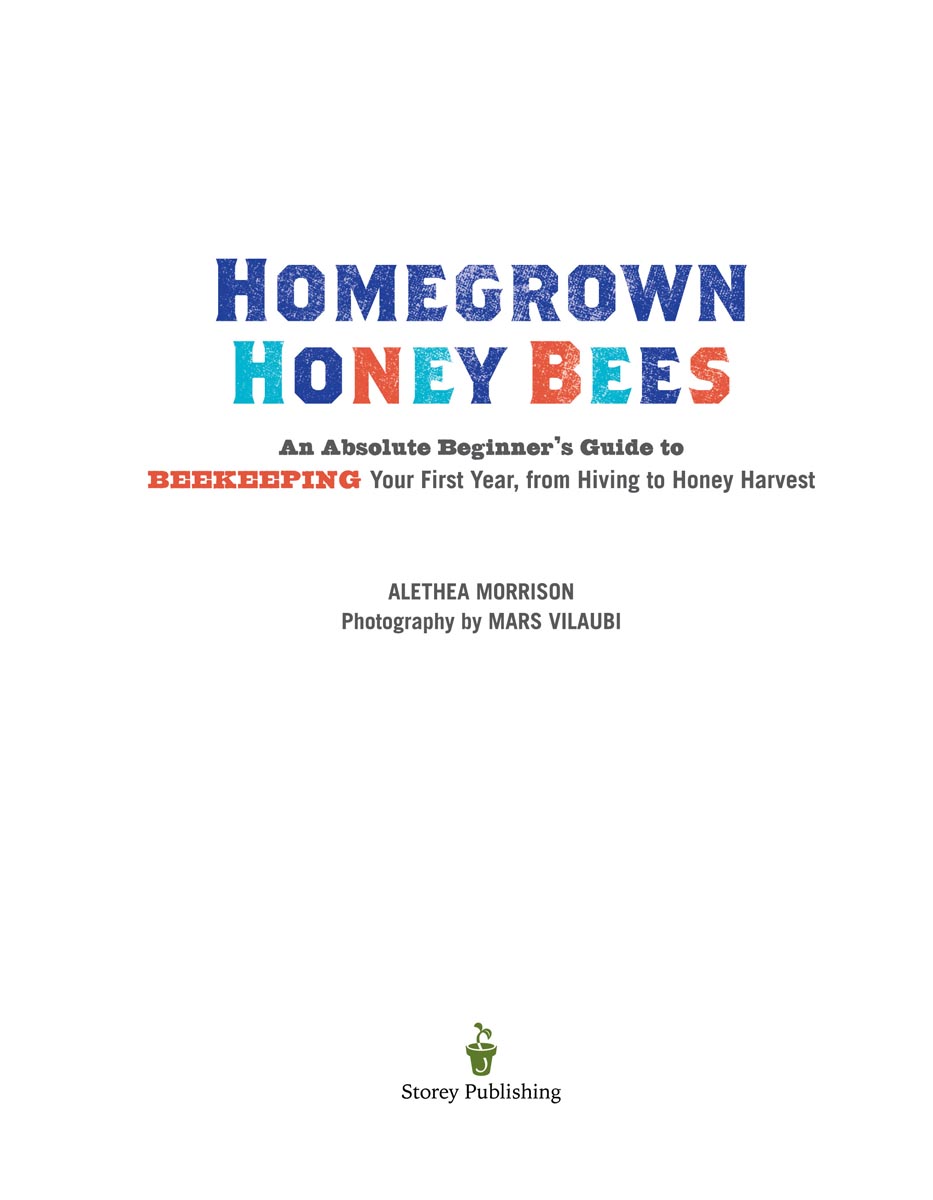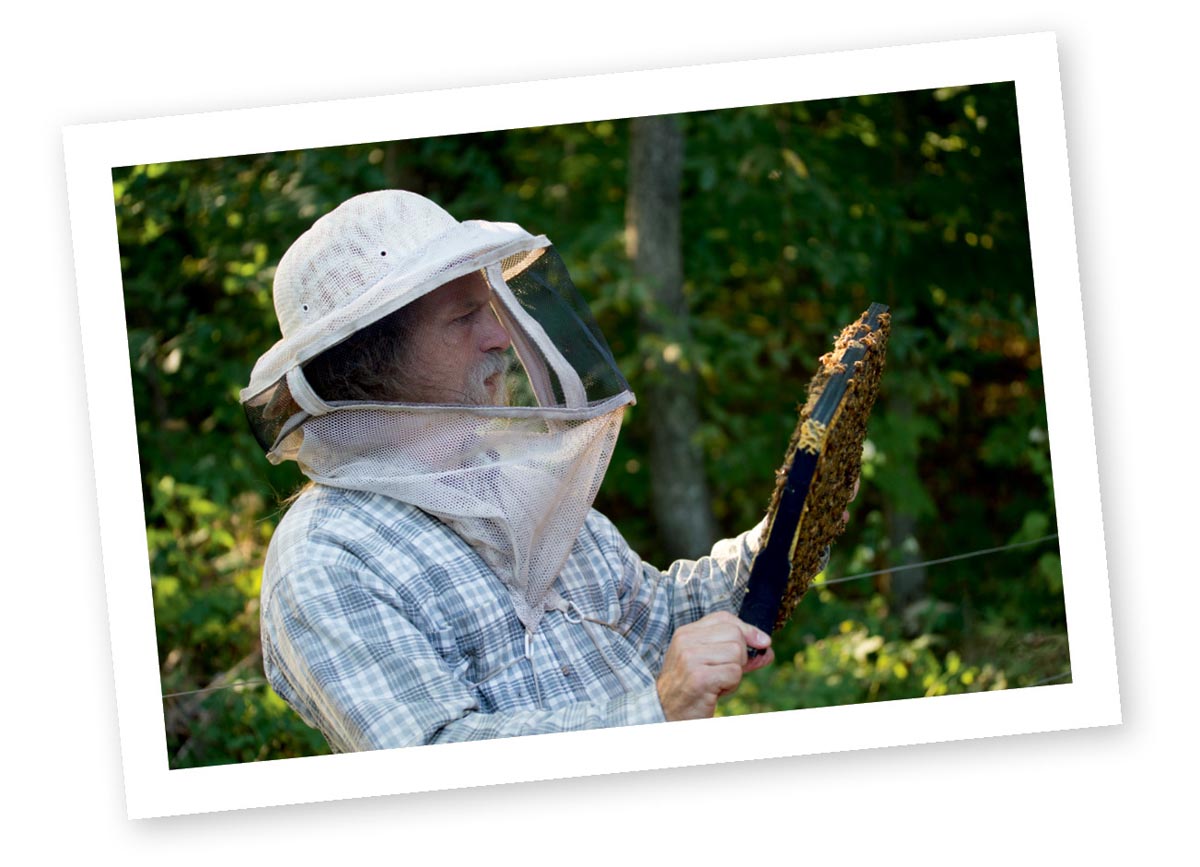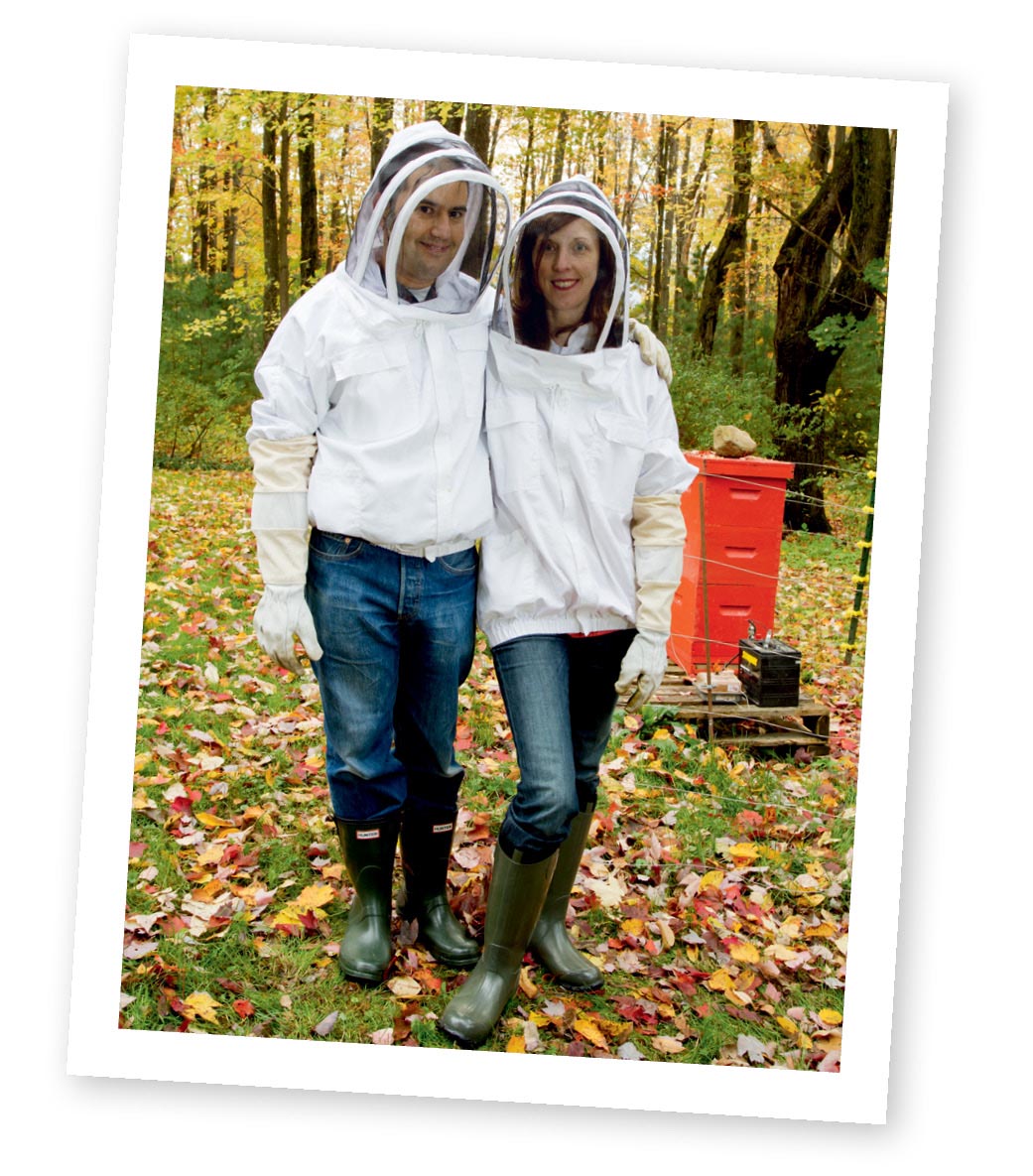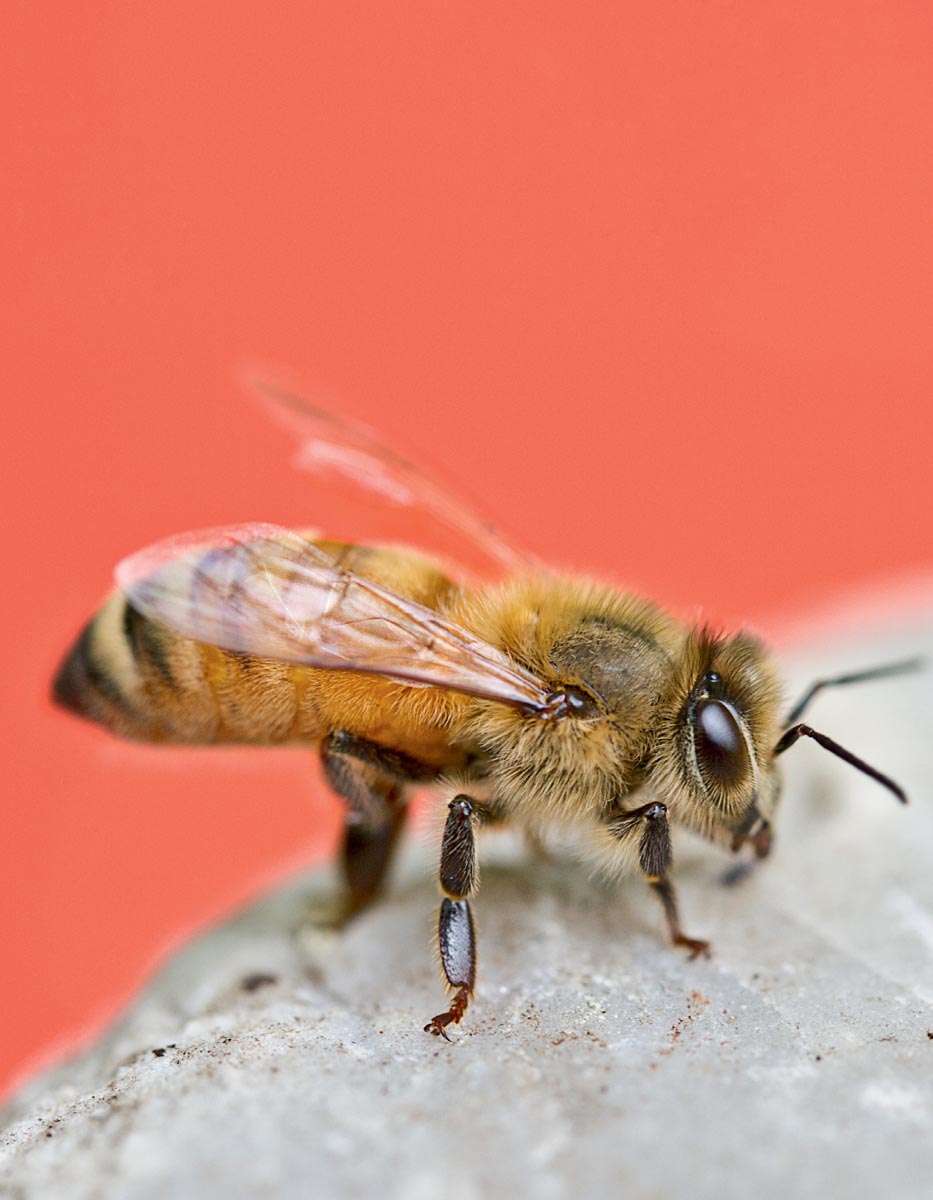The mission of Storey Publishing is to serve our customers by publishing practical information that encourages personal independence in harmony with the environment.
Edited by Deborah Burns
Art direction and book design by Alethea Morrison
Cover photography by Mars Vilaubi
Interior photography by Mars Vilaubi, except as noted
Illustrations by David Wysotski,
Chapter opener and Urban Beekeeping illustrations by Gilbert Ford (not included in ebook)
Indexed by Samantha Miller
Ebook design by Dan O. Williams
Ebook production by Kristy L. MacWilliams
2013 by Alethea Morrison and Marcelino Vilaubi
Ebook version 1.1
August 26, 2015
All rights reserved. No part of this book may be reproduced without written permission from the publisher, except by a reviewer who may quote brief passages or reproduce illustrations in a review with appropriate credits; nor may any part of this book be reproduced, stored in a retrieval system, or transmitted in any form or by any means electronic, mechanical, photocopying, recording, or other without written permission from the publisher.
The information in this book is true and complete to the best of our knowledge. All recommendations are made without guarantee on the part of the author or Storey Publishing. The author and publisher disclaim any liability in connection with the use of this information.
Storey books are available for special premium and promotional uses and for customized editions. For further information, please call 1-800-793-9396.
Storey Publishing
210 MASS MoCA Way
North Adams, MA 01247
www.storey.com
Additional Interior Photography Credits
Alina Solovyova-Vincent/iStockphoto: , row 3, right
Anna Kucherova/iStockphoto: , row 1, center left; row 2, center left
Archive Holdings, Inc./Getty Images:
Brenna Brock:
Bobbi Marstellar:
Don Nichols/iStockphoto: , row 2 left
hudiemm/iStockphoto: , row 4, right
John Henshall/Alamy:
Photo courtesy of Joy Godfrey and Local IQ Magazine:
julichka/iStockphoto: , row 1, center right
Kaan Ates/iStockphoto: , row 1, left
Lisa Warninger:
Mara Johnson:
Jill Reed: .
Matt McClafferty:
RedHelga/iStockphoto: , row 1, right; row 3, center left
Sunnybeach/iStockphoto: , row 3, left
Terry Wilson/iStockphoto: , row 2, center right
Tony Pisano:
Uyen Le/iStockphoto: , row 4, left
Viktor Lugovskoy/iStockphoto: , row 2, right
Vitaliy Pakhnyushchyy/iStockphoto: , row 3, center right
Thanks So Much
Our bee mentor, Tony Pisano, has kept many more hives than we have for many more years. Beekeeping is his passion. He seems to be everywhere at once in our community, proselytizing to people who dont yet keep bees, educating and supporting those who do. Thank you, Tony, for collaborating on this book with us.
Special thanks also to Michael Palmer and Randy Oliver for reaffirming our belief that beekeepers are some of the most generous people in the world. These excellent, expert beekeepers donated their valuable time to give us helpful feedback.
We dedicate this book to Wangari Maathai for being such a deep well of inspiration. We carry only single drops of water to a raging fire, but we are doing the best that we can.
Preface
There are days in your life you never forget. For me it was my wedding day. The birth of our son. The day my first chicken laid her first egg.
The last one may not seem like a biggie, but it was epic. My family and I had taken our chickens home when they were one day old and coddled them in our house until they were big and smelly enough to have to move outside. Then we cosseted them some more until that extraordinary November day when we found one gloriously beautiful egg in the nesting box. I was so proud, you would think I had laid it myself.
My chickens eggs taste better, and not just because they couldnt be any fresher. Theres a joy to DIY, whether its growing your own food, building a bookcase, reupholstering a chair, or knitting a scarf. I love this, I said to myself. What can I do to keep my DIY buzz on? Why, keep bees, of course!
My husband, Mars, is a photographer and an obsessive documentarian. During the first couple of years that we kept bees, he photographed how to install a new package of bees, light a smoker, inspect a hive, manage pests, harvest honey, and almost everything in between. We understood what beginners needed to know because we were learning ourselves at the same time. Nothing was second nature, so nothing was overlooked.
Ive approached the writing of this book in the same way, spelling out every step as clearly and concisely as possible for the absolute beginner. Im also sharing our personal experiences and those of other beekeepers Ive met along the way, because this journey is much livelier than basic facts and figures. Youll laugh, youll cry if not at my stories, then at your own as you become a beekeeper, too. Beekeeping is fun, fascinating, and heartbreaking. Kind of like life.
Chapter 1
Why Bees?
Sweet Alchemy
While many species of bees are pollinators, as are butterflies and other insects, honey bees are especially valuable to agriculture, because they let us keep them in hives. Commercial beekeepers transport hives from crop to crop, traveling hundreds or thousands of miles throughout the year. Honey bees economic value as pollinators actually far surpasses the value of their honey crop, but its the honey crop that motivates most backyard beekeepers.
Like wine or coffee, honey doesnt have one flavor. Nectar from different flowers creates honey with different essences. If you hope to produce honey from just one type of flower, such as clover, orange blossom, tupelo, buckwheat, or dandelion, your beehives must be in an area where that flower dominates, and as soon as those blossoms pass, you must harvest the honey or move the hives.
While monofloral honey is delicious and wonderful, wildflower honey is nothing short of astonishing. It may be concocted from a medley of different nectars, but each bottle is unique and special to the moment in time and place that the bees made it. I harvest honey at the same time as a beekeeping friend who lives less than two miles away, and our crops are totally different in color and flavor. Honey is a distillation of the miniscule spot on the planet that you and your bees inhabit: the transmutation of the land into liquid gold.
Aristotle surmised that bees collected honey from rainbows. He may not have gotten the science right, but he was spot on with the poetry of its flavor.

